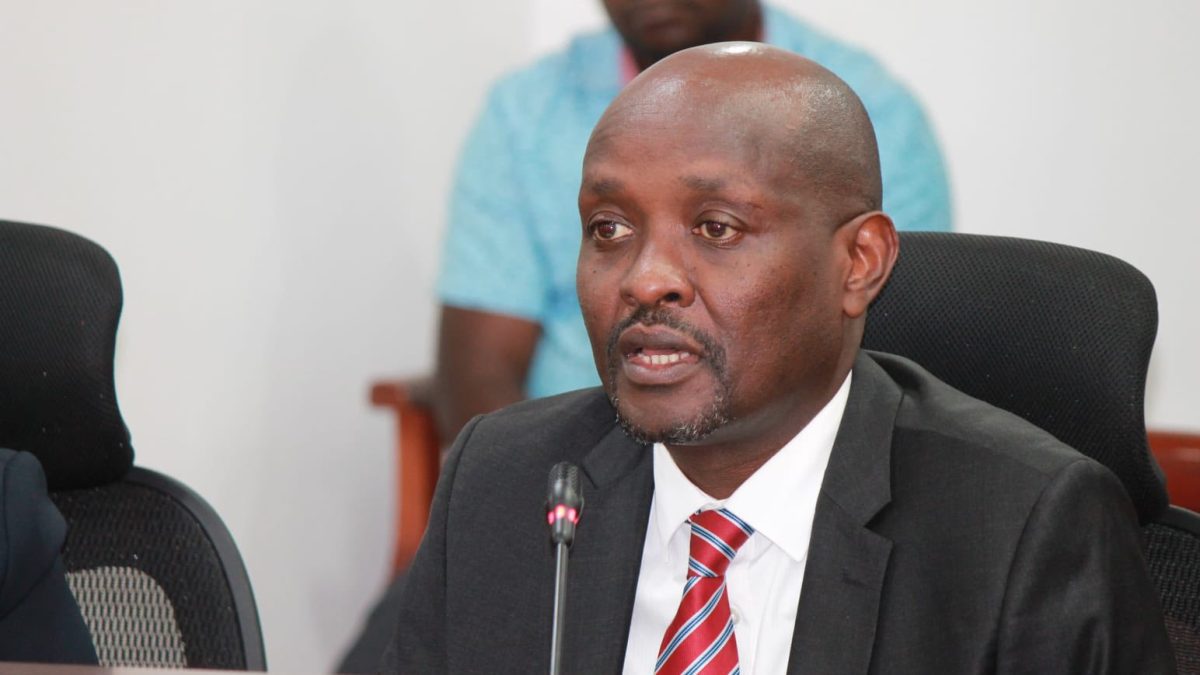News
HELB Intensifies Crackdown on Loan Defaulters, to Track Graduates Using Police
The strategy specifically targets those who have the means to repay but have chosen not to honor their obligations.

Higher Education Loans Board revives controversial strategy to recover billions from graduates who have failed to service education loans
The Higher Education Loans Board (HELB) has announced an intensified partnership with law enforcement agencies, including police officers, to track down loan defaulters as the institution grapples with a deteriorating financial position that threatens its ability to fund future students.
HELB Chief Executive Officer Geoffrey Monari revealed the aggressive recovery strategy during a Friday session with the National Assembly’s Public Investments Committee on Governance and Education, describing the board’s loan portfolio as facing “significant risk” due to widespread defaults by past beneficiaries.
Targeting employed graduates
According to Monari, HELB is finalizing partnerships with law enforcement agencies to trace graduates both locally and internationally who are gainfully employed but have failed to begin servicing their education loans.
The strategy specifically targets those who have the means to repay but have chosen not to honor their obligations.
“This is not just about finance,” Monari emphasized during the parliamentary session.
“It’s about fostering a sense of responsibility and patriotism among those who have benefited from the fund. Compliance ensures we can support future generations from needy backgrounds.”
The CEO explained that the initiative aims to boost recovery rates and address funding shortfalls that have left thousands of students unable to access loans, creating a crisis that threatens the sustainability of higher education financing in Kenya.
Members of the Public Investments Committee urged HELB to complement enforcement actions with enhanced community engagement and awareness efforts.
The lawmakers challenged the board to intensify community outreach through advertising, showcase real-life testimonials from beneficiaries, and pursue external resource mobilization beyond government capitation.
The parliamentary session also addressed the dire financial situation facing the Jomo Kenyatta Foundation (JKF), which has recorded a net loss of Ksh286.6 million with cumulative losses exceeding Ksh592 million.
JKF Managing Director David Mwaniki attributed the decline to government policy changes in textbook procurement that have severely impacted cash flow.
Controversy
This latest announcement represents a revival of a controversial strategy that has been employed intermittently since 2019.
Previous attempts to use police officers to track loan defaulters sparked significant public backlash, with critics arguing that the approach unfairly criminalizes young graduates struggling with unemployment and economic challenges.
HELB’s own records indicate that the organization has historically struggled with loan recovery, with tens of thousands of beneficiaries failing to service their obligations.
The board has previously attempted various recovery mechanisms, including publishing names of defaulters and tracking mobile money transactions.
Monari’s announcement comes just months after his appointment as HELB CEO in March 2025, replacing Charles Ringera who had served for a decade.
The new CEO brings over 15 years of senior management experience in higher education financing, having previously served as founding CEO of the Universities Fund and as Chief Operations Officer at HELB from 2016 to 2020.
His appointment was specifically intended to improve service delivery, enhance loan recovery strategies, and expand access to higher education funding across the country.
However, the decision to revive police involvement in debt collection suggests the depth of the financial crisis facing the institution.
Calls for comprehensive reform
The parliamentary committee has resolved to summon Education Cabinet Secretary Julius Migos Ogamba to present a comprehensive action plan addressing the structural and financial challenges facing both HELB and JKF.
Committee Chair Francis Sigei, the Sotik MP, emphasized the national importance of these institutions: “Education is the backbone of our nation’s future. We must not allow these institutions to collapse. Their survival is a matter of national interest.”
The renewed focus on aggressive debt collection raises questions about the balance between fiscal responsibility and social equity in higher education financing.
While HELB argues that recovery is essential to maintain the revolving fund concept that enables future lending, critics contend that heavy-handed enforcement may criminalize economic hardship rather than address systemic unemployment and underemployment among graduates.
The strategy also highlights broader challenges in Kenya’s higher education sector, where the cost of university education continues to rise while graduate employment opportunities remain limited, creating a cycle where loan repayment becomes increasingly difficult for many beneficiaries.
As HELB moves forward with its enforcement strategy, the success of the initiative will likely depend on its ability to differentiate between those who are genuinely unable to pay and those who have the means but have chosen not to honor their obligations.
The approach will also need to address the underlying economic factors that have contributed to the high default rates while ensuring the long-term sustainability of higher education financing in Kenya.
The parliamentary committee’s unanimous emphasis on saving both HELB and JKF underscores the critical importance of these institutions in supporting Kenya’s educational infrastructure and maintaining equitable access to higher education for future generations.
Kenya Insights allows guest blogging, if you want to be published on Kenya’s most authoritative and accurate blog, have an expose, news TIPS, story angles, human interest stories, drop us an email on [email protected] or via Telegram
-

 News1 week ago
News1 week agoTHE FIRM IN THE DOCK: How Kaplan and Stratton Became the Most Scrutinised Law Firm in Kenya
-

 Investigations2 weeks ago
Investigations2 weeks agoMulti-Million Dollar Fraud: Three Kenyans Face US Extradition in Massive Cybercrime Conspiracy
-

 Economy2 weeks ago
Economy2 weeks agoIran Demands Arrest, Prosecution Of Kenya’s Cup of Joe Director Director Over Sh2.6 Billion Tea Fraud
-

 Africa2 weeks ago
Africa2 weeks agoFBI Investigates Congresswoman Ilhan Omar’s Husband’s Sh3.8 Billion Businesses in Kenya, Somalia and Dubai
-

 Business2 weeks ago
Business2 weeks agoA Farm in Kenya’s Rift Valley Ignites a National Reckoning With Israeli Investment
-

 Grapevine6 days ago
Grapevine6 days agoA UN Director Based in Nairobi Was Deep in an Intimate Friendship With Epstein — He Even Sent Her a Sex Toy
-

 News2 weeks ago
News2 weeks agoTragedy As City Hall Hands Corrupt Ghanaian Firm Multimillion Garbage Collection Tender
-

 Arts & Culture2 weeks ago
Arts & Culture2 weeks agoWhen Lent and Ramadan Meet: Christians and Muslims Start Their Fasting Season Together























